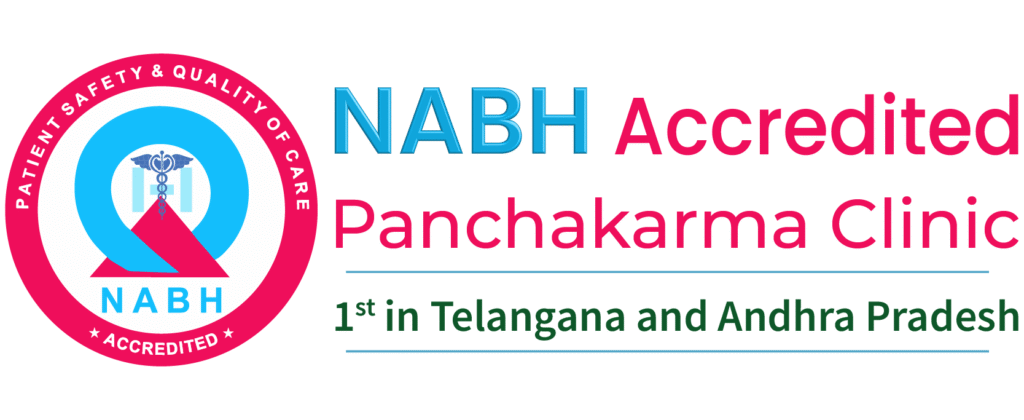Nasal health is essential for cognitive function. Blocked nasal passages can reduce airflow, impairing oxygen delivery to the brain. This leads to decreased focus, memory retention and problem-solving abilities. Our nose inhaler enhances airflow, optimizing olfactory function and stimulating mucosal membranes to clear irritants. Improved nasal breathing boosts oxygen flow, sharpening mental clarity and reducing anxiety. Discover more about how effective nasal care transforms cognitive performance and overall wellness.
The Connection Between Nasal Health and Cognitive Function
Although often overlooked, nasal health plays an essential role in cognitive function. The nasal cavity is not merely a passage for air; it is a complex system that influences brain activity. Through the olfactory system, the nose communicates directly with the brain, affecting mood, memory and decision-making processes.
Innovations in this field highlight how treatments available at an Ayurvedic hospital in Vijayawada can strengthen respiratory and cognitive wellness simultaneously.
When the nasal passages are healthy, airflow improves, facilitating ideal oxygen exchange, which is significant for brain metabolism. As research continues to disclose the intricate ties between nasal health and cognitive performance, it becomes increasingly important to prioritize nasal care as part of an overall strategy for enhancing mental acuity and innovative thinking.
How Nasal Blockages Affect Brain Performance
When nasal blockages occur, they can greatly impair brain performance by disrupting the flow of oxygen-rich air to the brain. This reduction in airflow can lead to decreased cognitive functions such as focus, memory retention, and problem-solving abilities. The brain, reliant on adequate oxygen levels, functions suboptimally when nasal passages are obstructed. As a result, tasks requiring creativity and analytical thinking may suffer, resulting in diminished productivity. Additionally, chronic nasal blockages can contribute to fatigue and irritability, further hampering mental clarity. In an age where innovation thrives on sharp cognitive capabilities, maintaining unobstructed nasal passages becomes essential for peak brain performance. Prioritizing nasal health is therefore a vital, yet often overlooked, aspect of enhancing overall cognitive function and productivity.
The Science Behind Our Nose Inhaler
The nose inhaler, a remarkable innovation in respiratory health, operates on fundamental principles of nasal physiology. By targeting the intricate structure of the nasal passages, it enhances airflow and optimizes olfactory receptor function. The inhaler utilizes a blend of essential oils and botanical extracts, which are strategically formulated to stimulate the mucosal membranes and promote respiratory efficiency. This innovation not only facilitates improved air quality but also encourages the natural clearance of airborne irritants. Additionally, its design allows for a controlled release of active ingredients, maximizing their efficacy while minimizing potential side effects. As a result, the nose inhaler exemplifies a cutting-edge approach to enhancing nasal function, paving the way for enhanced overall well-being.
Benefits of Improved Nasal Breathing for Mental Clarity
Improved nasal breathing greatly contributes to mental clarity, as it enhances oxygen flow to the brain and promotes optimal cognitive function. By facilitating ideal airflow, nasal breathing guarantees that the brain receives the necessary nutrients and oxygen to operate efficiently.
This increased oxygenation can lead to sharper focus, enhanced memory retention, and improved problem-solving capabilities. Moreover, nasal breathing activates the parasympathetic nervous system, fostering a state of calmness that can reduce anxiety and mental fatigue.
Specialized Ayurvedic care, such as treatments at a NABH Ayurvedic Panchakarma clinic in Vijayawada, can further support these benefits by aligning nasal and overall body wellness.
Ultimately, embracing improved nasal breathing practices can yield transformative benefits for cognitive performance and overall mental wellness.
Tips for Maintaining Optimal Nasal Health
A variety of practices can greatly contribute to maintaining ideal nasal health. Regularly using saline sprays can effectively moisturize the nasal passages, preventing dryness and irritation. Incorporating steam inhalation into daily routines can promote mucus clearance and enhance respiratory function. Additionally, adopting a balanced diet rich in antioxidants and omega-3 fatty acids supports overall mucosal health. Staying well-hydrated is essential, as it aids in maintaining optimal mucus consistency. Engaging in regular physical activity not only boosts circulation but also enhances oxygen flow, benefiting nasal health. Finally, minimizing exposure to allergens and pollutants through air purifiers can greatly reduce nasal discomfort. By implementing these innovative strategies, individuals can foster robust nasal health, ultimately supporting cognitive function and overall well-being.
Frequently Asked Questions
- Can Nasal Health Influence Mood and Emotional Well-Being?
Research suggests that nasal health can greatly influence mood and emotional well-being. The nasal passages are closely linked to the brain’s limbic system, which governs emotions. When nasal health is compromised, it may disrupt the olfactory signals that affect mood regulation. Innovative approaches focusing on enhancing nasal function could potentially lead to improved emotional states, highlighting the importance of maintaining ideal nasal health as a cornerstone of overall mental wellness and cognitive performance.
- How Often Should I Use a Nose Inhaler for Best Results?
The frequency of using a nose inhaler for ideal results can depend on individual needs and the specific formulation. Generally, it is recommended to use the inhaler several times a day, particularly during moments of stress or fatigue. Users should monitor their response and adjust usage accordingly. Consultation with a healthcare professional can provide tailored advice, ensuring the inhaler is integrated into a holistic approach to enhance clarity and focus effectively.
- Are There Any Side Effects of Using a Nasal Inhaler?
The potential side effects of using a nasal inhaler can vary, but typically include nasal irritation, dryness, or a burning sensation. Some users may also experience sneezing or a headache. In rare cases, prolonged use may lead to dependency or rebound congestion. Understanding these possibilities is essential for users seeking innovative solutions for nasal health, ensuring they can maintain clarity and focus without compromising their wellbeing while using such devices.
- Can Allergies Impact My Cognitive Function?
Allergies can considerably impact cognitive function, as they often lead to inflammation and congestion that restricts airflow. This can result in decreased oxygen supply to the brain, impairing focus and mental clarity. In addition, allergy symptoms such as fatigue and headaches can further hinder cognitive performance. Understanding the link between allergic reactions and cognitive decline highlights the importance of addressing nasal health for overall mental acuity and productivity in innovative approaches.
- What Lifestyle Changes Can Support Better Nasal Health?
To support better nasal health, individuals can implement several innovative lifestyle changes. These include maintaining proper hydration to keep mucous membranes moist, incorporating air purifiers to reduce allergens, and utilizing nasal saline rinses for cleansing. Regular exercise enhances overall circulation, promoting efficient airflow. Additionally, adopting a balanced diet rich in anti-inflammatory foods may bolster immune function, further protecting nasal passages. Mindfulness practices can also reduce stress, which indirectly benefits nasal health.












